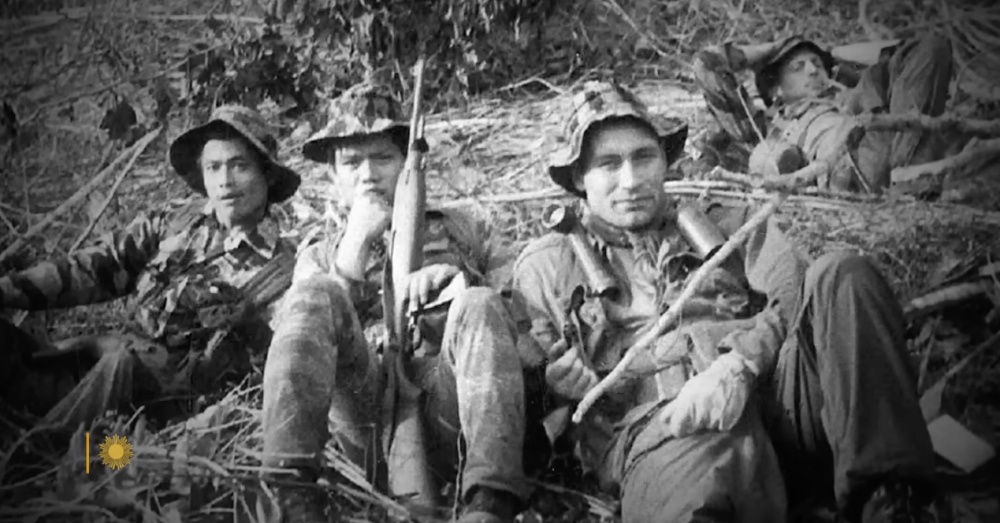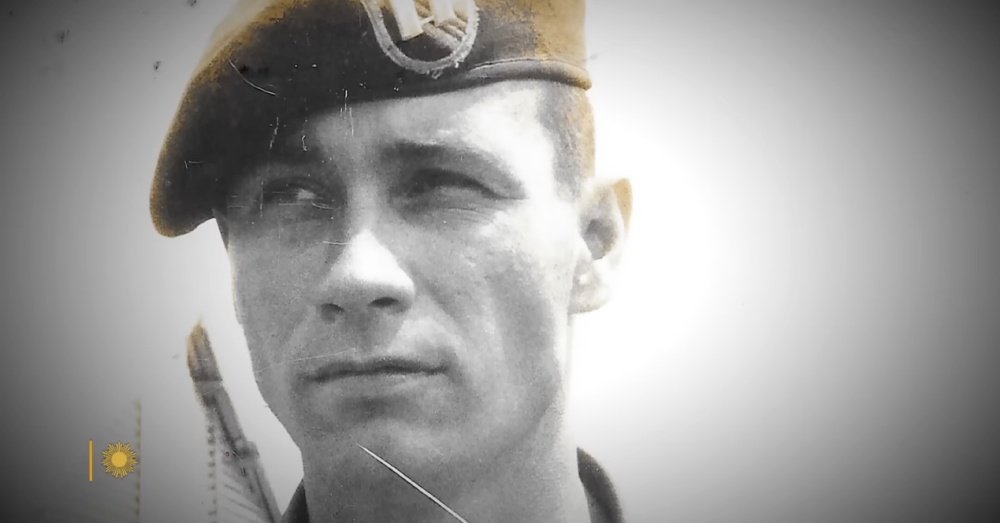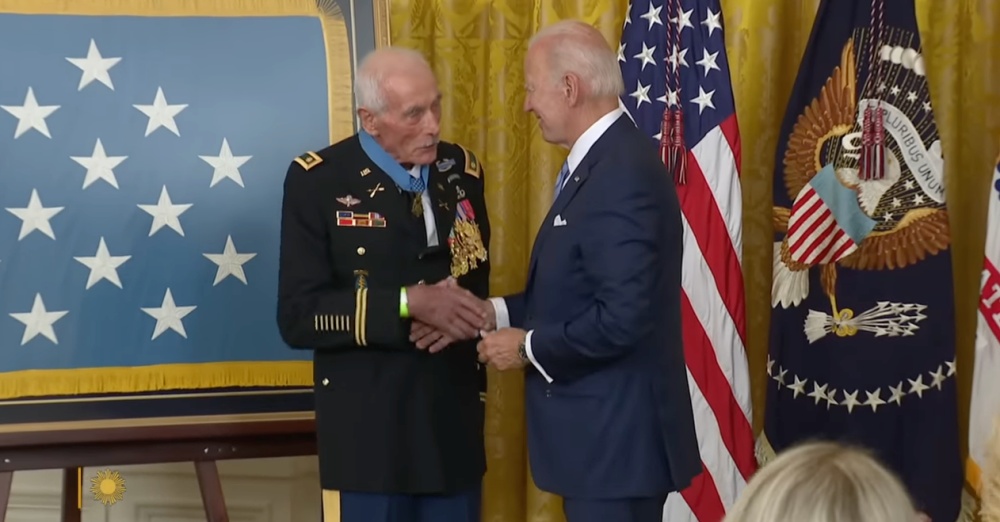
When Poetry Is The Best Way To Tell The Story
It is not unusual for a soldier to come away from the experiences of combat to write a book about those experiences. It is one of the most effective ways to get the demons of war out of one’s head, to purge them, to turn the ethereal images of memory into concrete words that spill out onto the page. Many have done so after every war. One could fill many shelves with such books. But few turn to poetry to tell the story.
This video is of an exceptional warrior, a Medal of Honor recipient, who tells the story of the battle he was in with the more compact, succinct, bold images of poetry. His name is Maj. John Duffy. He recently received the Medal of Honor for the actions he undertook in Vietnam some five decades ago. You will see him read from the epic poem that he wrote here in this CBS Sunday Morning interview.

The realities of Duffy’s experience are as difficult and horrendous as any example of warfighting. His battle was at a forward fire base called, “Charlie.” It was one of several along the Laotian border charged with observing and preventing North Vietnamese Army (NVA) units from entering South Vietnam. The “Battle for Charlie” took place late in the American involvement in the war, 1972. Duffy was the sole American, a Green Beret advisor, attached to a unit of the South Vietnamese Army stationed at Fire Base Charlie. They were set upon by parts of 3 divisions of the NVA. Both sides understood that it was to be a “battle to the death,” and it was as close to that as one can come in battle. The battle would last for 2 full weeks. Valor and fighting spirit were everywhere, day and night, among Duffy’s ARVN troops during those those two weeks.
Duffy’s poem deals with his own thoughts and imagines the thoughts of the enemy commanders as well. He was a 6’2″ American, and he was the one with the radio calling in the air and artillery support. As a poet, he can imagine, probably quite accurately, that the NVA commanders were telling their men to “target the tall American with the radio. He’s the one calling in the jets on us.” With poetic imagination, he can see the event from his own perspective and at the same time step outside of that and into the mind of the “enemy,” recognizing the intent to kill or be killed from both perspectives. This is one of the powers of poetry.

Since the beginning of time, poetry has been a powerful means of getting to the heart of the matter, revealing the deeper truths that often hide behind and beneath things. Poetry goes beyond the practical and the pragmatic. The poet has the capacity to “see” the whole of a thing. It goes beneath and above the material realities and reveals the meanings that only the heart can perceive.
One of the earliest examples of “war poetry” is, of course, Homer’s “The Iliad,” about the great Achilles and the honorable Hector, who are the heroes of the opposing forces engaged in the epic ten-year-long war before the walls of Troy. That poem was written 900 years before the birth of Christ. Maj. Duffy’s poem is conceived on a much smaller scale than “The Iliad” in terms of time but at no less a scale on the personal level. His poem reveals the deeper truths of combat when he writes, for example, “They were fighting for what they believed in, and we were fighting for what we believed in.” And, “No one won at Charlie, each side managed to lose.” This gets at one of the truths about war that is not often given much attention. He can speak about “Death no longer being a stranger,” for example. In that sense, death takes on the elements of a character that struts through the killing fields and overwhelms the combatants on both sides equally.

In many ways, Duffy’s poem has put flesh and bones, the smell, the taste, and the inner fears of combat into the Medal of Honor he recently was awarded. His heroism in the midst of a two-week-long struggle at Fire Base Charlie is clearly of the depth and tenor deserving of the Medal of Honor. We are happy that the award he received for bravery in Vietnam has been upgraded to the Medal of Honor.
We offer our thanks to Maj. John Duffy for his service to the country and for his heroism and care for his South Vietnamese combat brothers during the Battle for Charlie. We offer our congratulations to him, and we say to him, “Welcome home, good soldier.” Hooah!